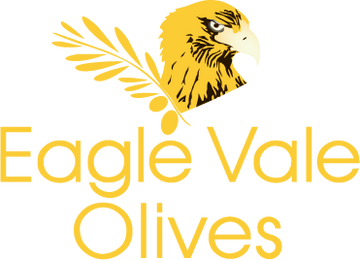How the Combination of Olive Oil and Sleep Can Prevent Cardiovascular Events
November 01, 2018
By MARY WEST
New research has revealed why foods rich in unsaturated fats like olive oil help protect from cardiovascular disease. It found they promote higher levels of a protein that prevents the formation of blood clots.
Apolipoprotein A-IV, known as ApoA-IV, is a plasma protein that increases after digestion of foods, especially those rich in unsaturated fats. Research links higher levels of ApoA-IV to a lower incidence of cardiovascular disease.
Keenan Research Centre for Biomedical Science (KRCBS) of St. Michael’s Hospital in Toronto showed that ApoA-IV inhibits the aggregation of platelets, components of the blood that can clump together and form clots within arteries. Such clots obstruct blood flow and are the most common cause of death.
“Platelet aggregation can save lives because it can stop bleeding in damaged vessels,” said principal investigator Heyu Ni, Platform Director for Hematology, Cancer and Immunological Diseases at KRCBS. “But we usually don’t want platelets to block blood flow in the vessels. This is thrombosis, and if vessel occlusion occurs in the heart or brain, it can cause heart attack, stroke or death.”
For a blood clot to develop, a series of connections must happen. A platelet receptor connected to a platelet first bind to fibrinogen, an abundant protein in blood plasma. Next, fibrinogen binds to another receptor on a second platelet. Afterward, fibrinogen and possibly other proteins allow platelets to connect to each other, a process that culminates in platelet aggregation.
In the study, Ni and his colleagues found ApoA-IV can connect to platelet receptors, thus blocking fibrinogen binding and reducing platelet aggregation in a blood vessel. Moreover, the team noted that ApoA-IV can alter its shape to accommodate increased blood flow: this action helps protect arteries from complete blockages.
“This is the first study to link ApoA-IV with platelets and thrombosis,” Ni said. “With this work, we have also explained why higher levels of ApoA-IV can slow down plaque build-up in blood vessels, known as atherosclerosis because this process is also related to platelet function.”
The researchers also investigated ApoA-IV’s interaction with food. Eating a meal stimulates platelets, which increases the likelihood that they’ll bind to each other or to white blood cells. However, after eating a meal containing unsaturated fats, blood levels of ApoA-IV increase almost immediately, an effect that reduces platelet bonding. This decreases inflammation that follows a meal, along with the risk of a heart attack or stroke.
In addition to the above findings, the research team observed that ApoA-IV operates within a circadian rhythm. It’s more active at night and less active in the morning.
“Mother Nature wants us to sleep well,” Ni said. “So we are protected by this protein while we sleep, and most likely to experience a cardiovascular event after waking up in the morning.”
Callie Exas, a registered dietician nutritionist from Brooklyn, New York, explained to Olive Oil Times how the new findings build on earlier research. Clearly, olive oil, especially extra virgin, is of considerable value for heart health.
“Studies show olive oil’s content of monounsaturated fatty acids, omega 3 fatty acids and antioxidants prevent blood vessels from hardening,” she said.
“Basically, these components reduce the risk of cardiovascular events by keeping the endothelial cells lining the blood vessels and the heart supple. In doing so, they protect from wear and tear, which reduces the buildup of oxidative materials and plaque in the arteries. These actions, as well as the platelet-inhibiting effect, help keep arteries and heart tissue healthy.”
The study generated excitement among the researchers because it showed that foods rich in unsaturated fats, together with good sleep patterns, maximize the opportunity for ApoA-IV to reduce the risk of heart attacks, stroke and atherosclerosis.
Ni looks forward to future studies to explore how to harness this protection in developing treatment for cardiovascular disease and other conditions associated with platelet aggregation. The results were published in the journal Nature Communications.
SOURCE : Olive Oil Times
Recent Articles
Frequent Olive Oil Consumption May Reduce Risk of Blood Clots
October 08, 2019
Recipe: Butterflied Chicken with Herbs and Cracked Olives
September 20, 2019
Vegetables' health benefits increase when cooked with EVOO
September 02, 2019
Recipe: Mini herb, green olive and buttermilk cornbreads
August 19, 2019
Mediterranean Diet Linked to 33-Percent Lower Depression Risk
August 07, 2019
